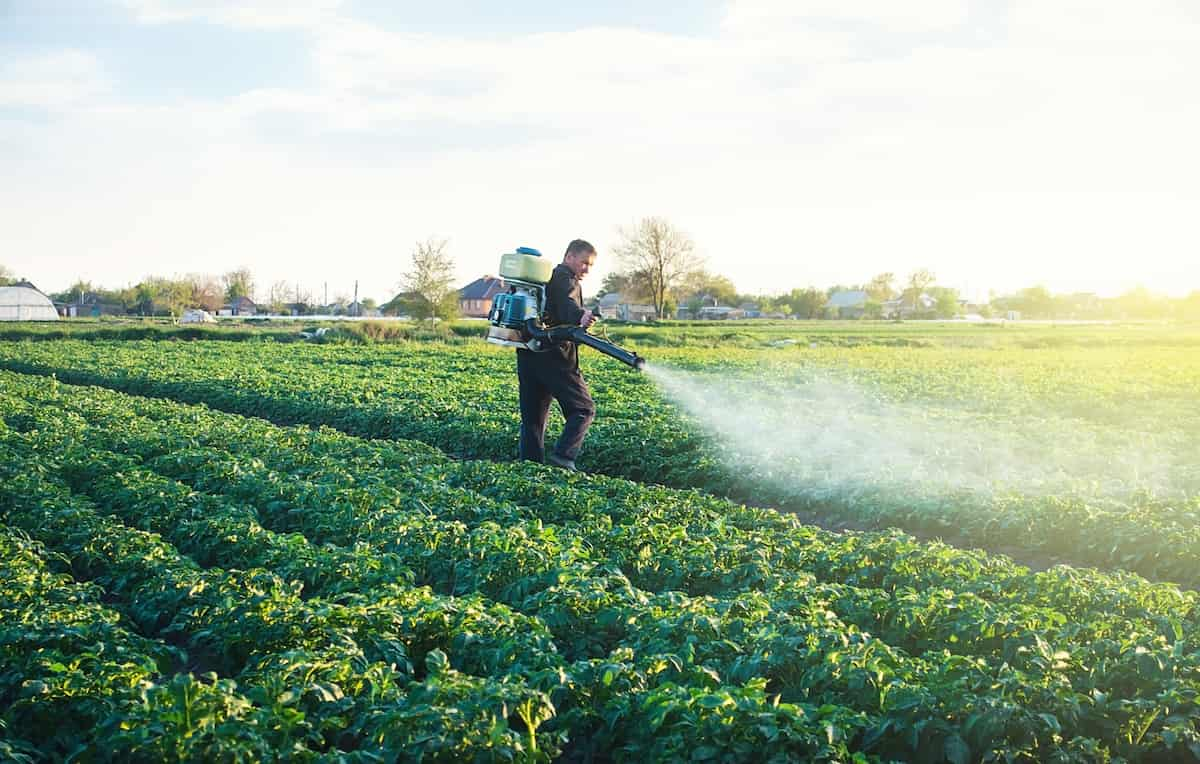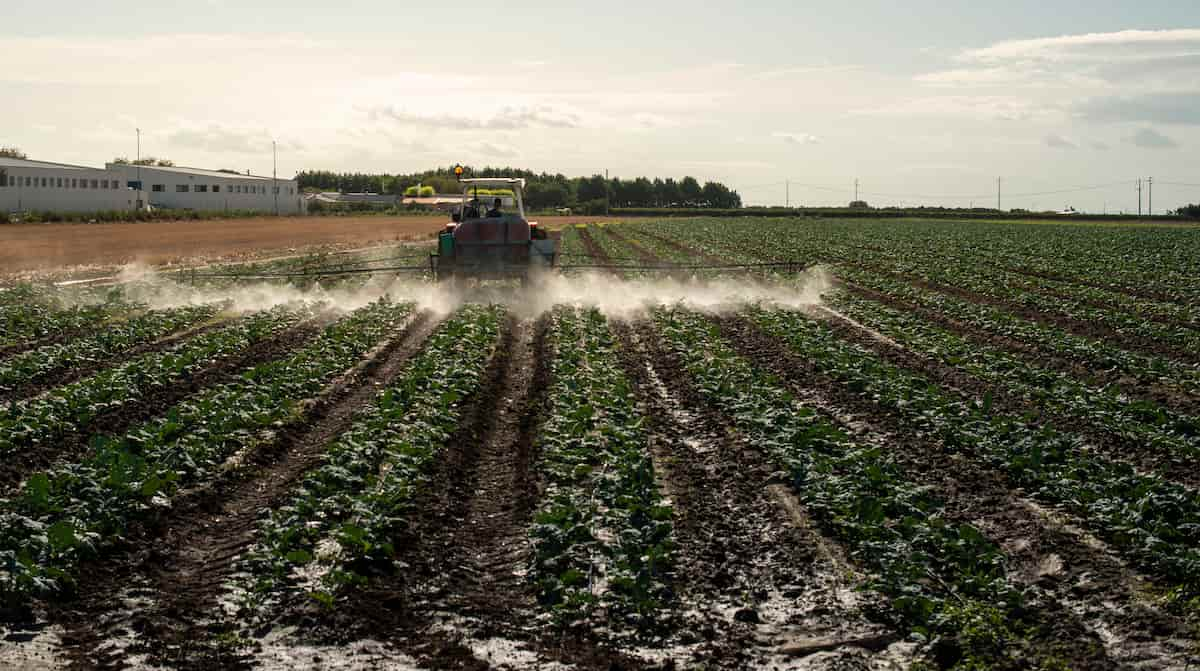Nano silver has been found to enhance plant growth and development, increase resistance to pests and diseases, improve soil quality, and reduce water usage. Applying nano silver to plants can be done through various methods, including foliar spray, seed treatment, and soil drench.

Dosage recommendations for different crops are available, and it is essential to have precautions when using nano silver to avoid potential risks to human health and the environment. Successful applications of nano silver in agriculture have been observed in various crops and regions, with farmers and researchers reporting significant benefits.
What is Nano Silver in Agriculture
Nanotechnology offers new solutions to improve crop yields and reduce pesticide usage by introducing new agrochemical agents and delivery mechanisms. Nanosilver has gained attention as a potential pesticide for agricultural use in recent years, especially as pests resist traditional chemical pesticides.
Nano silver is a form of silver that is extremely small, measuring only a few nanometers in size. It is used in agriculture to enhance plant growth and development, increase resistance to pests and diseases, improve soil quality, and reduce water usage. Nano silver can be applied to plants through various methods such as foliar spray, seed treatment, and soil drench. It is important to use caution when applying nano silver to avoid potential risks to human health and the environment.
Advantages of Nano Silver in Agriculture
- Bactericides and fungi in pesticides: Silver nanoparticles exhibit strong antifungal activity against plant diseases, including Bipolaris sorokiniana and Macrophoma theicola. Nanosilver is also combined with other substances to create effective fungicides and bacteria in agriculture, such as silica-silver nano, in controlling pathogenic microorganisms in plants.
- Increase seed germination rate: Silver nanoparticles enhance seed germination, plant growth, and photosynthetic quantum performance and are antimicrobial agents to control plant diseases.
- Prolonging shelf life of fruits and vegetables: Nanosilver can also be used as a post-harvest treatment to extend/overcome the shelf life of fruits and vegetables. For example, silver nanoparticles have been shown to increase the storage time of strawberries by up to 10 days.
- Soil remediation: Nanosilver can be used to remediate contaminated soils. For example, it has been found that silver nanoparticles can reduce the bioavailability and toxicity of cadmium in soil.
- Enhancing nutrient uptake: Silver nanoparticles can enhance nutrient uptake in plants, improving crop yields. For example, silver nanoparticles have increased nitrogen uptake in rice plants.
How to Apply Nano Silver to Your Plants
- Nano silver, also known as silver nanoparticles, is widely used in consumer products due to its antimicrobial properties. However, when released into the environment, plants can take and transfer them to humans through the food chain, raising concerns about human health.
- The physical properties of nanoparticles, environmental conditions, and plant species influence the uptake process of nano silver by plants. Once taken up, nanosilver undergoes biotransformation, including aggregation, oxidative dissolution, sulfidation, chlorination, and complexation with organic matter. It is still being determined whether transformed products accumulate in edible plant tissues.
In case you missed it: Top 10 Applications of Artificial Intelligence (AI) in Agriculture

Tips for Applying Nano Silver to Plants
- Use nano silver with appropriate physical properties and surface coatings.
- Apply nano silver in soil conditions that support plant growth and minimize interactions with co-contaminants.
- Monitor plant uptake and translocation of nano silver, and assess potential risks to human health.
- Consider alternatives to nano silver when possible to minimize potential risks.
Precautions to Take When Using Nano Silver
- Silver nanoparticles are a useful tool in agriculture, but it’s important to take proper precautions when handling and storing them to maintain their stability and effectiveness.
- Silver nanoparticles should be stored between 2-8°C and protected from light. Freezing should be avoided because it can result in irreversible aggregation, which can be detected by a change in the solution’s color and increased red light absorption.
- When working with silver nanoparticles, it is crucial to remember that particles larger than 60 nm may settle over time, but this will not affect their performance.
- Before use, the particulates must be re-suspended by agitating the container until a uniform solution is obtained.
Applications of Nano Silver in Plant Protection
- Silver nanoparticles are highly beneficial in chemical diagnostics, Agriculture, therapeutics, and device manufacturing due to their unique properties.
- The synthesis of these nanoparticles is commonly done through physical and chemical methods, which can be expensive and may lead to the absorption of toxic materials.
- Biological procedures involving bacteria, actinomycetes, fungi, algae, viruses, and plant extracts have been introduced as viable alternatives to overcome these issues.
- Silver nanoparticles primarily use in therapeutics, particularly for their antimicrobial and anti-inflammatory properties. In addition, these nanoparticles also have applications in plant protection.
- This chapter aims to comprehensively understand the production, mechanism of action, and application of silver nanoparticles in plant protection.
When To Use Nano Silver in Agriculture
- Nano silver can be used in agriculture.
- Nano silver can be applied topically, taken internally, or inhaled using an ultrasonic nebulizer.
- Topical application can be made by pouring it directly on the affected area or soaking the affected body part in it.
- Homemade nano silver gel can be made by mixing 25% nano silver and 75% aloe vera gel, which can be spread on the affected area.
- Nano silver can also be sprayed using a small plastic spray bottle as a disinfectant to sanitize surfaces in the kitchen and bathroom.
- Commercial deodorants contain harmful substances, whereas pure silver in distilled water has no harmful properties when applied topically.
Case Studies of Successful Nano Silver Applications in Agriculture
- In Vietnam, Nano Silver was used to treat banana plants infected with Fusarium oxysporum f. sp. cubense, which causes banana wilt disease. The application of Nano Silver resulted in a significant reduction in disease severity and an increase in plant growth and yield.
- In China, Nano Silver was used as a foliar spray on cucumber plants infected with powdery mildew and other diseases and easy.
- In India, Nano Silver controlled bacterial wilt in tomato plants.
- In Thailand, Nano Silver treated black Sigatoka disease in banana plants. Reduction in disease severity and an increase in plant growth and yield.
In case you missed it: Benefits of Goat Manure Fertilizer in Agriculture and How to Apply

Conclusion
Nano silver can help improve plant growth and productivity by promoting nutrient absorption and increasing disease resistance. Nanosilver can be applied as a foliar spray or added to irrigation water but should be used judiciously to avoid potential environmental risks.
- Feed Your Flock for Less: Top 10 Tips to Save on Chicken Feed
- Ultimate Guide to Ossabaw Island Hog: Breeding, Raising, Diet, and Care
- Hatching Answers: The Top 10 Reasons Your Chickens Aren’t Laying Eggs
- Eggs and Economics: Breaking Down the Cost of Raising Backyard Chickens
- Defend Your Greens: Proven Methods to Keep Iguanas Out of Your Garden
- Ultimate Guide to Cinnamon Queen Chicken: A Comprehensive Guide for Beginners
- Ultimate Guide to California Tan Chicken: Breeding, Raising, Diet, Egg-Production and Care
- Ultimate Guide to Marsh Daisy Chicken: Breeding, Raising, Diet, and Care
- 10 Types of Chicken Farming Businesses You Can Start for Profits